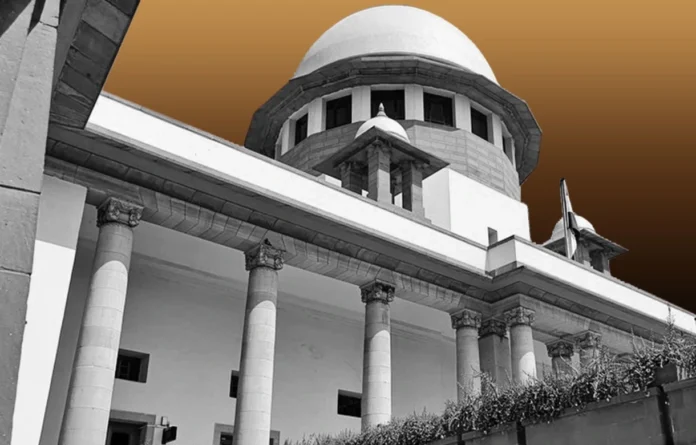The Supreme Court on Friday quashed the criminal proceedings under the Uttar Pradesh Gangsters and Anti-Social Activities (Prevention) Act against the Director of Sam Higginbottom University of Agriculture Technology and Science (SHUATS) after finding that the FIR and charge sheet were based on a gang chart rubber-stamped by authorities without any independent application of mind.
The Bench of Justice JB Pardiwala and Justice Manoj Misra held that there was no indication of any joint meeting or deliberation as required under Rule 5(3)(a) of the 2021 Rules framed under the Act.
The manner in which police and district administration sanctioned the gang chart amounted to placing liberty at the mercy of rubber-stamp bureaucracy, it noted.
The Court further observed that the competent authority forwarded and approved the gang chart without verifying whether it had been prepared in accordance with the Rules of 2021. The registration of the subject FIR was in complete violation of the procedural safeguards.
The authorities, entrusted with the solemn duty of safeguarding life and liberty, treated it with such casual indifference, it added.
The top court of the country observed that this was truly a case of the fox guarding the henhouse.
As per the FIR registered at Naini Police Station, Allahabad, SHUATS Director Vinod Bihari Lal and one David Dutta ran an organised gang involved in economic offences. The gang chart was approved the same day the FIR was registered. Charge sheets in five earlier FIRs were used as the basis for initiating proceedings under the Gangsters Act.
Challenging the registration of the Gangster case, Lal filed two separate petitions before the High Court under Section 482 CrPC, to quash the proceedings and to quash non-bailable warrants issued against him.
On April 19, 2023, the High Court dismissed both petitions, holding that violence or disturbance of public order was not essential under the Gangsters Act and that the gang chart reflected proper application of mind. It also ruled that the pendency of interim reliefs in base FIRs did not nullify the allegations.
Lal then moved the Supreme Court
The Apex Court found that four out of the five FIRs used as the basis for initiating proceedings under the Gangsters Act have either been quashed, stayed or were filed against other accused who were not included in the Gangsters Act case.
In at least one, the date of the alleged incident was missing. Another case had already been quashed by the Supreme Court. The Court concluded that there was no indication that the alleged acts were done to disturb public order or obtain undue material advantage, both of which were required under the Act.
Criticising the investigation and the prosecution process as a whole, the Court said there was nothing in the record to show that any of the required statutory procedures were followed.
The gang chart was approved by the competent authority merely by affixing his signature on a pre-printed gang-chart, an act that reflected nothing short of a complete non-application of mind and constituted a violation of Rules 16 and 17 of the Rules of 2021 respectively, it added.
The Bench expressed its strong displeasure over the investigating officer for stating in the charge sheet that offences were proved without conducting any meaningful probe or attaching corroborative documents.
It held that the role of investigating agencies was strictly circumscribed to conducting an impartial investigation into the alleged crime. The guilt or the innocence of the accused was for the trial court to determine, it added.
Noting that the case fell squarely within the Bhajan Lal guidelines for quashing of criminal proceedings, the Bench observed that continuing such proceedings would amount to harassment and abuse of law.
The top court of the country further directed the State authorities to strictly comply with the 29-point checklist and guidelines issued by the Uttar Pradesh government in December 2024 for invoking the Gangsters Act.
Earlier, the top court of the country asked the State to frame such guidelines to prevent misuse.
Setting aside the High Court order, the Apex Court allowed Lal’s appeal and quashed all proceedings arising from the Gangster’s Act. It clarified that its observations applied only to the Gangsters case and would have no bearing on the pending proceedings in the underlying FIRs.


